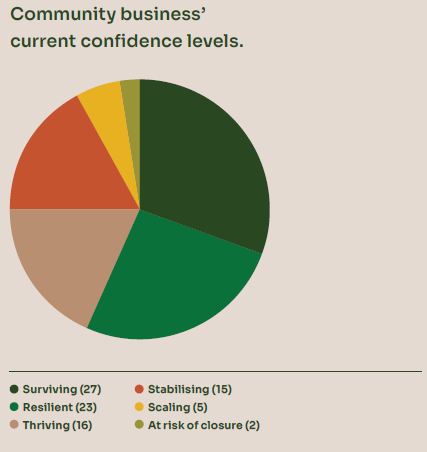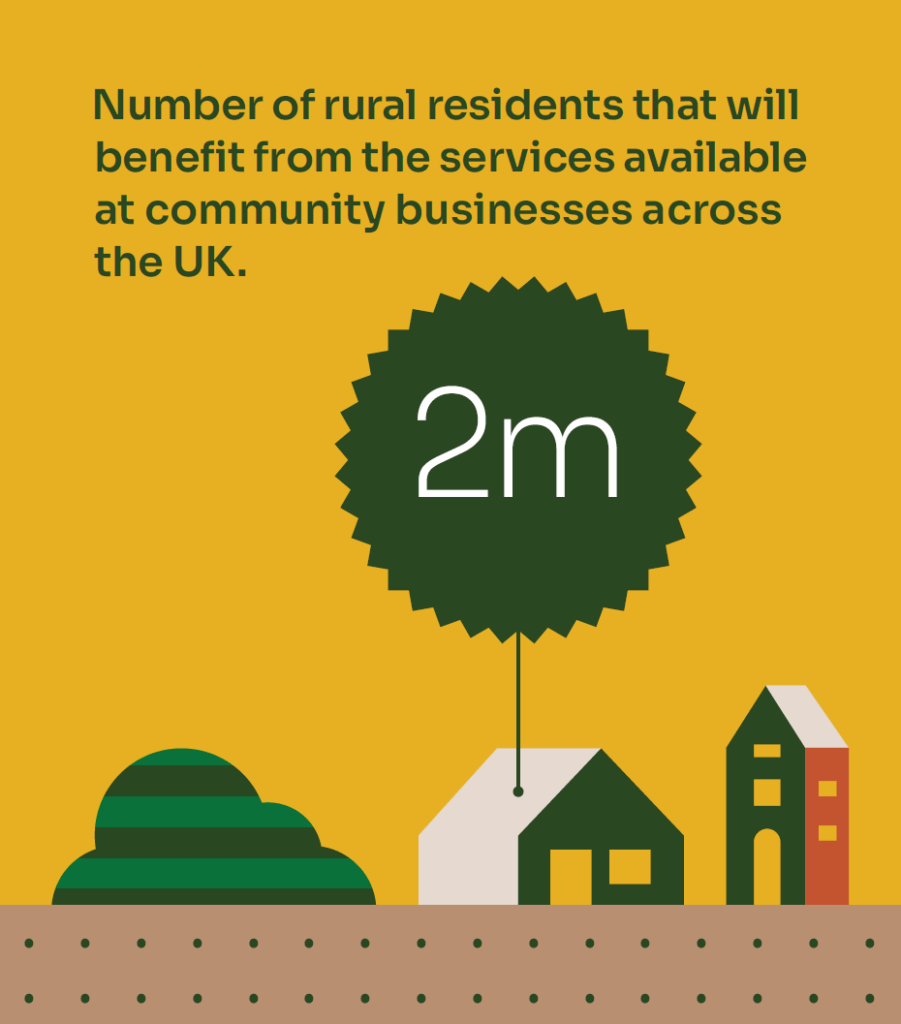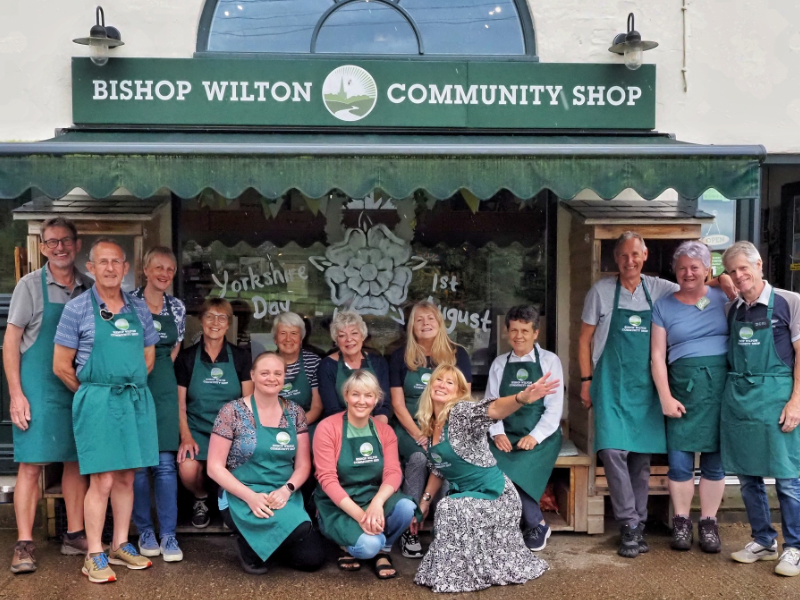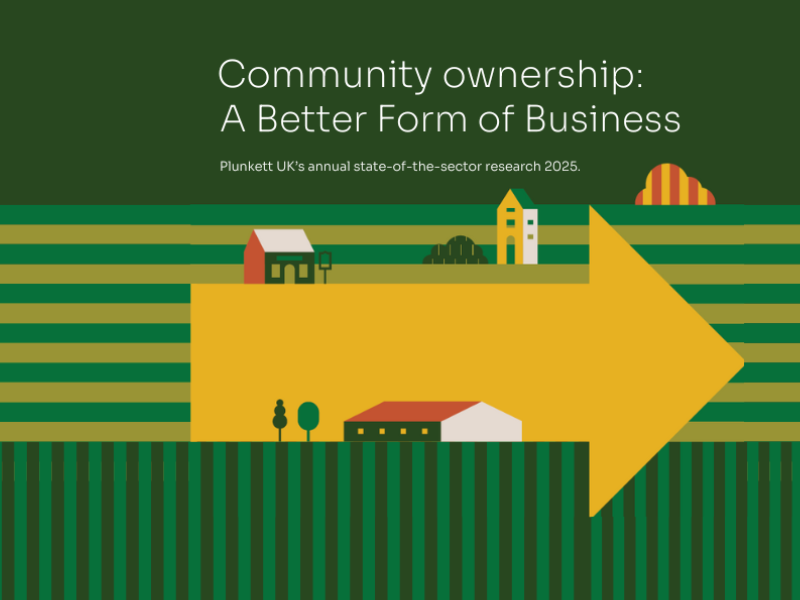New research from Plunkett UK reveals that rural community-owned businesses are already delivering social, economic and environmental benefits that align directly with government ambitions – yet they remain under-recognised and under-supported in doing so.
Encouraging growth
Plunkett’s annual report, Community Ownership: A Better Form of Business shows that the sector has grown by 59% over the past decade, defying the trend of economic decline in many rural areas.
There are 828 community-owned businesses now trading across the UK – from shops and pubs to farms and fisheries – and each provide essential services to over 2 million people, employing 5,000 staff and mobilising 20,000 volunteers.
Together, community businesses generate a £166 million annual turnover, reinvest £2.4 million of profits into local initiatives, and contribute an estimated £437 million in gross value added to the UK economy. They are, says Plunkett, “doing exactly what government says it wants to achieve” – driving inclusive growth, boosting pride in place, and empowering local decision-making.

Better support needed
However, the charity warns that this success is being achieved in spite of, not because of, government support. Plunkett’s research shows that “the sector is now at crisis point with the worst confidence levels we have ever seen” – 32% of community businesses are only just surviving and 2% are at risk of closure.
The report identifies barriers such as high National Insurance, VAT and Business Rates, which limit these businesses’ ability to employ staff and expand their community impact.
Meanwhile, a lack of direct funding, following the closure of the Community Ownership Fund, is preventing community groups from being able to realise the dream of taking ownership and saving a local business or asset; despite attempts to strengthen community right to buy regulations.
James Alcock, Chief Executive of Plunkett UK, said,
“For too long, governments have overlooked the vital role of rural community businesses in tackling isolation, maintaining local services and creating economic resilience. With almost 150,000 members investing £77 million of their own money, these businesses embody the inclusive growth that government wants to see.
“We urge ministers to recognise and back this proven model, and to work with Plunkett to ensure their initiatives are reaching rural areas, where there is a track record for long-term sustainability.”

Advocating for change
The report, which was launched at a Parliamentary Reception today (Monday 3 November), concludes with six practical policy recommendations to help government unlock the full potential of the sector – supporting its mission to double the size of the co-operative economy, empower local communities, and revive rural areas long left behind.
The report has been sponsored by Plunkett’s partners, Thakeham, Better Society Capital, Access – The Foundation for Social Investment.
Six interventions we would like to see from policymakers:
- Maintain growth via FREE core advice and support services.
- Accelerate growth via a Rural Community Ownership Fund.
- Power up existing community businesses via Revenue Funding.
- Ensure the Community Right to Buy regulations are strengthened.
- Fairer taxation and appropriate rate relief.
- Legislative reform to embed placemaking within new developments.
Key messages from the research:
- With 828 rural community businesses now trading throughout the UK, the sector has grown by 59% in the last decade, bucking the trend of economic decline in rural areas and representing 10% of all independent co-operatives in the UK.
- With a pipeline of 1,150 start-up groups sector growth is likely to continue – Plunkett is well placed to support the government’s mission to double the size of the co-operative sector.
- Business survival rates remain exceptional, with a long-term survival of 94% and five-year average survival of 97.5% – far exceeding SME averages.
- Community businesses can be proud of their impact – providing services to 2 million people in 2024, employing 5,000 people and 20,000 volunteers.
- We are seeing lower levels of confidence in the sector with 32% of community businesses only just ‘surviving’ and 2% ‘at risk of closure’.
- Plunkett has outlined proposals for growing the sector in line with the government’s mission to double the size of the co-operative sector – including a dedicated rural Community Ownership Fund costing £10m over 10 years.
- Despite lower levels of confidence, 50% of community businesses are making plans to evolve their business in line with community needs, with an aim of growing their impact on the community, the economy and the environment.

Bishop Wilton Community Shop & Café celebrated five years of trading in 2025.
The purpose of the research report, Community Ownership: A Better Form of Business, is to:
- Benchmark the characteristics and trading performance of community businesses to assist both pre-trading and trading communities with business planning and evolving their future strategies
- Assess the health of the current network of trading business network to enable Plunkett to evolve its community business service in line with emerging support needs
- Establish an evidence base for Plunkett’s advocacy work, to achieve better funding, legislation and policy for the benefit of community-owned businesses across all four UK nations.






